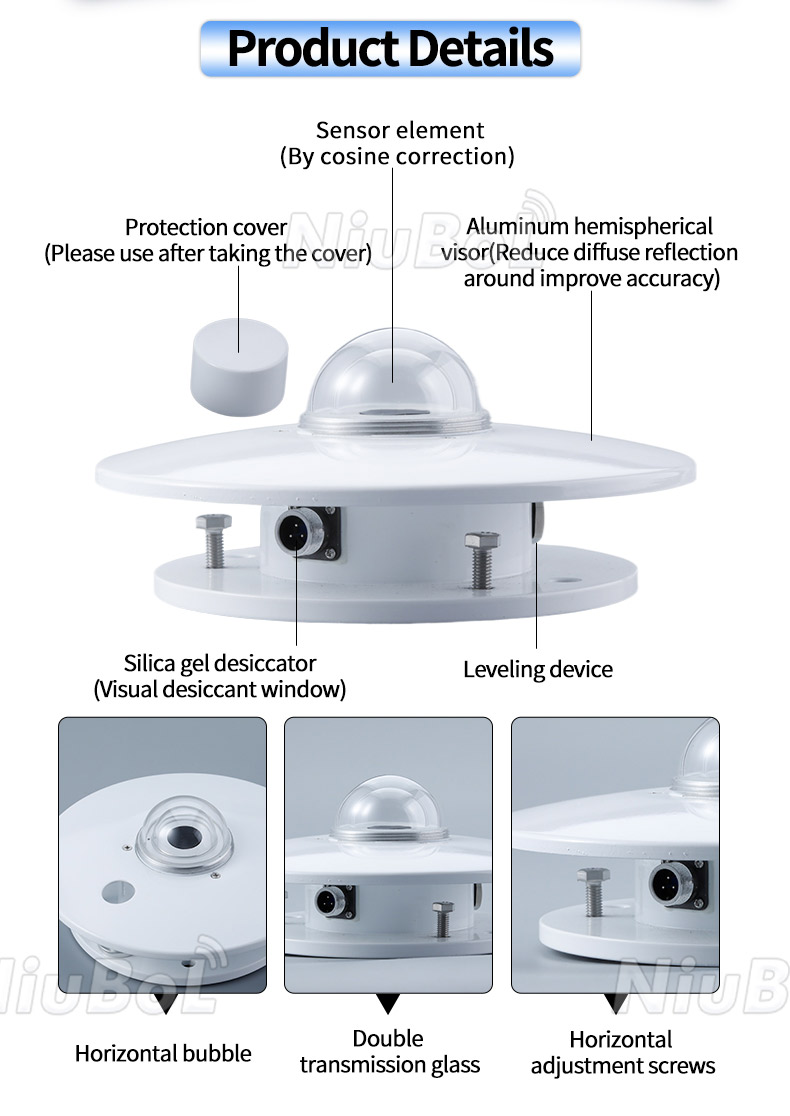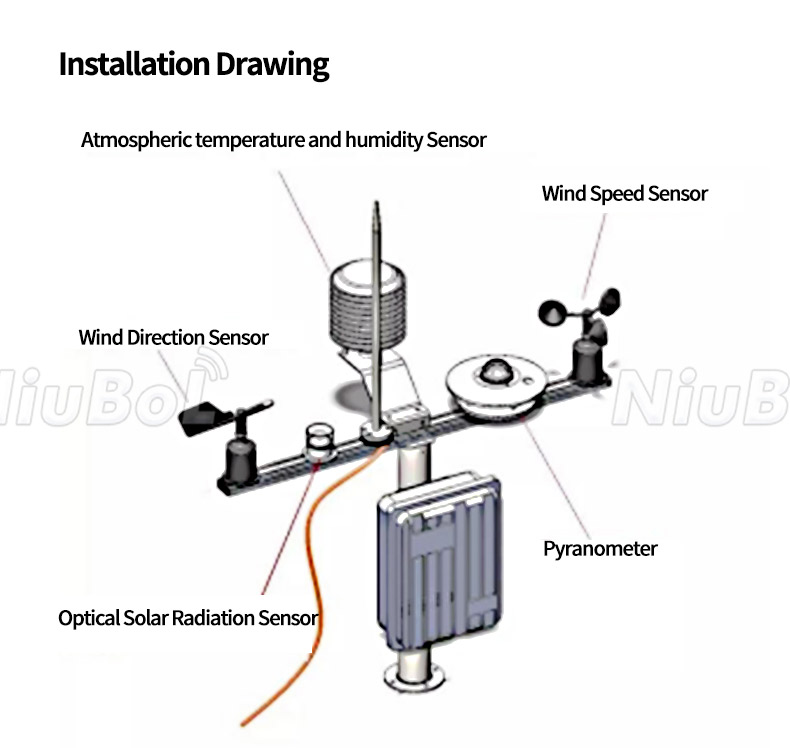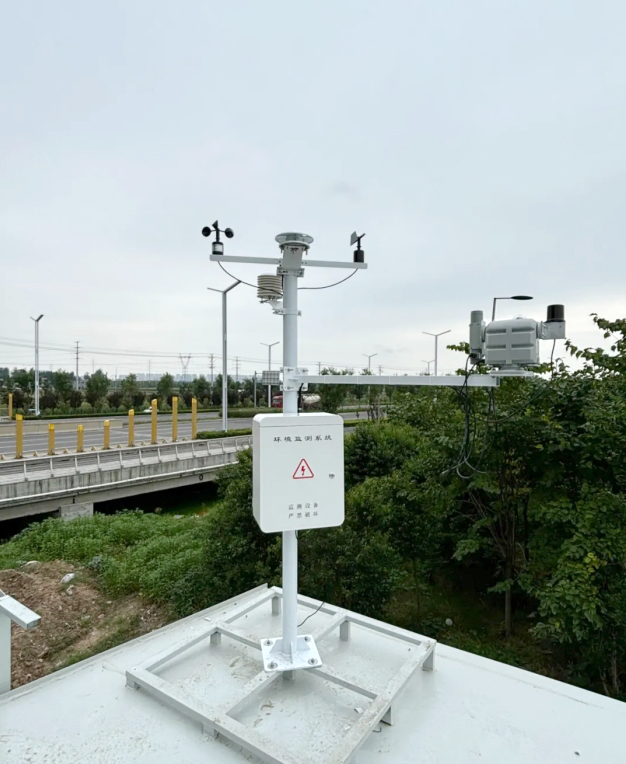

— Blogs —
—Products—
 Consumer hotline +8618073152920
Consumer hotline +8618073152920 WhatsApp:+8615367865107
Address:Room 102, District D, Houhu Industrial Park, Yuelu District, Changsha City, Hunan Province, China
Product knowledge
Time:2024-09-01 15:46:25 Popularity:1609
Solar irradiance is defined as the radiant energy per unit of time per unit of area on the solid earth's surface after solar radiation reaches the solid earth's surface through absorption, scattering, reflection and other effects of the atmosphere. Its unit is watts / square metre (W / m²).
Solar irradiance can be divided into direct irradiance (Direct Irradiance) and scattered irradiance (Diffuse Irradiance). Direct Irradiance is radiation coming directly from the sun, while Diffuse Irradiance results from the scattering of solar radiation by gases and particles in the atmosphere. Solar irradiance is an important parameter for the quantitative description and study of solar radiation. For solar energy use, meteorology, environmental science and other fields are of great significance.

Measurement of solar irradiance usually requires the use of professional measurement equipment, such as Pyranometer (also known as solar radiometer or total radiation meter) or spectroradiometer. These devices are capable of accurately measuring the solar radiation energy reaching the Earth's surface and converting it into quantifiable data.
Pyranometer: It is mainly used to measure the total solar radiation received on a horizontal plane, both direct and scattered. It usually consists of a heat-sensitive element (e.g., a thermopile) that absorbs solar radiation and converts it into an electrical signal, thereby measuring the intensity of the radiation.
Spectroradiometer: Capable of measuring the distribution of solar radiation in different wavelength ranges, i.e. spectral irradiation. This is important for the study of the spectral properties of solar radiation and its effects on the Earth's climate and ecosystem.

Direct measurement method: The solar radiation reaching the Earth's surface is measured directly using a pyranometer or spectroradiometer. This method is simple and straightforward, but it is necessary to ensure that the measuring equipment is in the correct position and angle to avoid measurement errors.
Indirect measurement method: Solar irradiance is derived by measuring other parameters related to solar radiation (e.g. atmospheric transparency, cloud cover, etc.) and using mathematical models. This method requires more data and calculations, but can be estimated without direct measurement equipment.
Measurement of solar irradiance is affected by a number of factors, including solar altitude, atmospheric quality, atmospheric transparency, geographic latitude, sunshine duration and altitude. Among them, solar altitude is one of the most important factors affecting solar irradiance. The higher the altitude of the sun, the shorter the distance the light travels through the atmosphere and the less the energy attenuation, so the more solar radiation energy reaches the Earth's surface.

Summary.
Solar irradiance is a key parameter for measuring the radiant energy of the sun, and its measurement requires the use of specialised equipment and means. The measurement helps to understand the impact of solar radiation on the Earth's climate and ecology and provides a scientific basis for solar energy utilisation. Measurement of solar irradiance is critical for solar power generation, building daylighting, agriculture and weather forecasting, optimising solar system performance, assessing daylighting conditions and predicting the weather.
Solar irradiance has important application value in scientific research, industrial applications, energy assessment, environmental protection, etc. It provides basic data for optics, materials science, life science, etc. and plays a key role in photovoltaic, environmental monitoring, materials testing and other industries.
NBL-W-HPRS-Solar-Radiation-Sensor-Instruction-Manual-V3.0.pdf
Related recommendations
Sensors & Weather Stations Catalog
Agriculture Sensors and Weather Stations Catalog-NiuBoL.pdf
Weather Stations Catalog-NiuBoL.pdf
Related products
 Combined air temperature and relative humidity sensor
Combined air temperature and relative humidity sensor Soil Moisture Temperature sensor for irrigation
Soil Moisture Temperature sensor for irrigation Soil pH sensor RS485 soil Testing instrument soil ph meter for agriculture
Soil pH sensor RS485 soil Testing instrument soil ph meter for agriculture Wind Speed sensor Output Modbus/RS485/Analog/0-5V/4-20mA
Wind Speed sensor Output Modbus/RS485/Analog/0-5V/4-20mA Tipping bucket rain gauge for weather monitoring auto rainfall sensor RS485/Outdoor/stainless steel
Tipping bucket rain gauge for weather monitoring auto rainfall sensor RS485/Outdoor/stainless steel Pyranometer Solar Radiation Sensor 4-20mA/RS485
Pyranometer Solar Radiation Sensor 4-20mA/RS485
Screenshot, WhatsApp to identify the QR code
WhatsApp number:+8615367865107
(Click on WhatsApp to copy and add friends)
